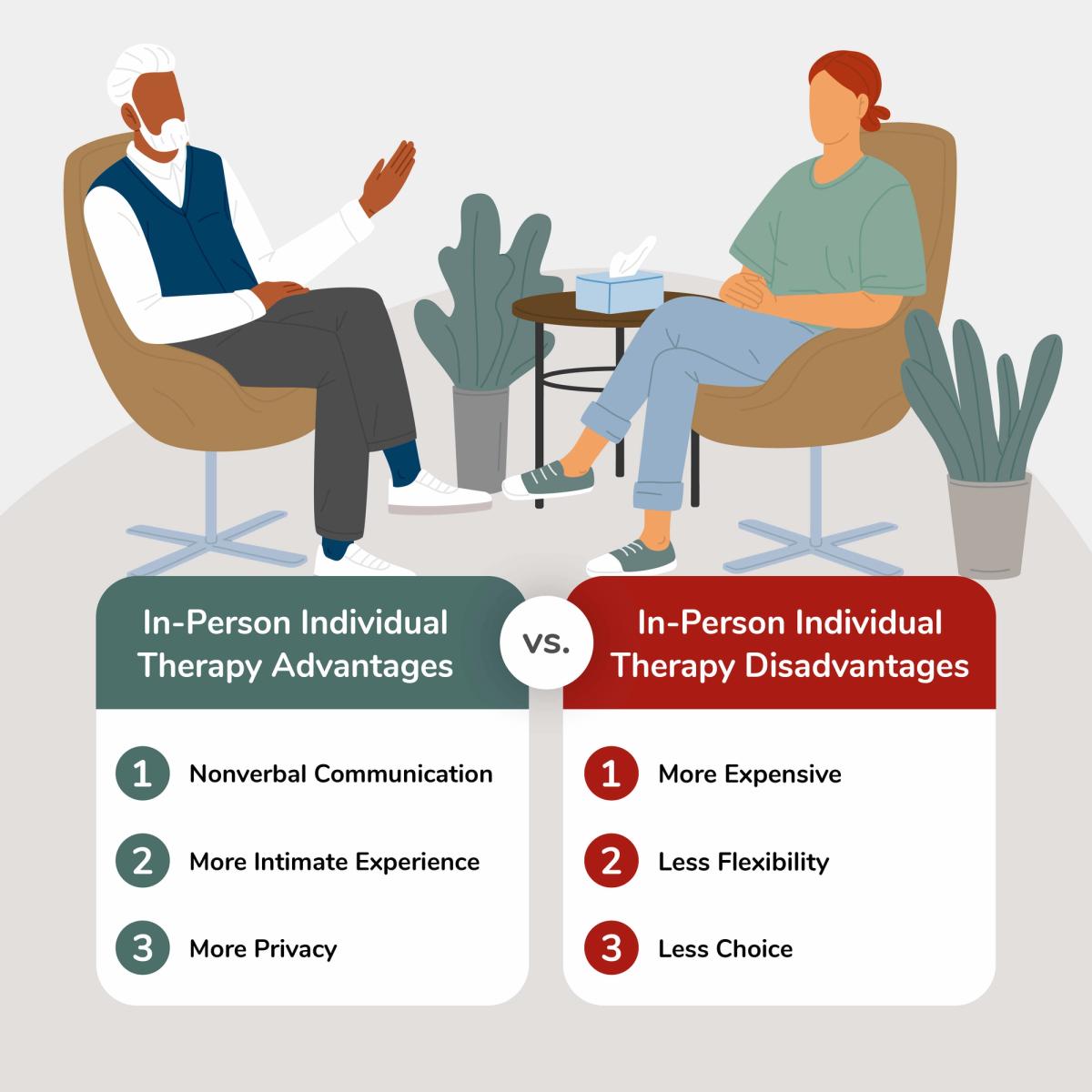Individual Therapy Toronto real transformations: how local teens rebuilt confidence
Wiki Article
Exploring the Advantages of Psychological Therapy for Teen Health and Growth
Mental therapy plays a pivotal function in the wellness and development of teenagers. Adolescence is a turbulent period noted by social and emotional difficulties. Treatment supplies a structured atmosphere for teenagers to articulate their feelings and face their struggles. It furnishes them with essential tools for durability and interaction. As they browse this developing stage, the impact of therapy can be profound. What details advantages can arise from such assistance throughout these formative years?
Recognizing the Teenage Mind: Obstacles and Pressures
As teens browse the intricacies of their developing stage, they face numerous obstacles and stress that can considerably affect their psychological health and wellness. This period is marked by considerable physical, emotional, and social adjustments, which can generate sensations of confusion and unpredictability. Peer impact heightens, typically resulting in a battle for approval and identity. Academic assumptions can produce additional stress and anxiety, as the pressure to excel mounts in a progressively competitive setting.The introduction of social media presents a new layer of intricacy, where comparisons to curated online identities can exacerbate sensations of insufficiency and anxiety. These aspects can result in psychological distress, consisting of stress and anxiety, clinical depression, and low self-confidence. Recognizing these obstacles is essential for parents, instructors, and psychological health specialists, as it supplies understanding into the teen experience and highlights the demand for supportive interventions to promote strength and health during this important developing stage.
Creating a Safe Space for Expression
Producing a risk-free room for expression is essential for teenagers navigating their troubled developing phase. In healing setups, this setting cultivates open dialogue, allowing teens to communicate their feelings without worry of judgment. Such areas enable them to explore their emotions and thoughts, which is crucial for recognizing their identifications and experiences.When teens really feel protected, they are most likely to share their struggles, including anxiety, depression, or interpersonal problems. This open interaction can lead to much deeper understandings and assist in individual growth.
Furthermore, a risk-free area motivates creativity and self-reflection, giving young adults the liberty to reveal themselves through various electrical outlets, such as art or writing. Establishing count on between the therapist and the adolescent is essential, as it underpins the effectiveness of the healing process. Ultimately, producing a safe room for expression serves as a foundation for psychological healing and individual development throughout these formative years.
Creating Coping Strategies and Strength

Therapists typically present strategies such as mindfulness, journaling, and analytic abilities, allowing teenagers to handle their reactions better. Furthermore, by taking part in role-play situations, they practice how to deal with tight spots, strengthening their confidence. Over time, these skills cultivate a feeling of firm, gearing up teens with the tools to navigate life's unpredictabilities. The growth of durability not only help in getting over prompt difficulties however also prepares for much healthier psychological reactions in the adult years, inevitably adding to lifelong health.
Enhancing Interaction Skills
Reliable communication skills are vital for teenagers as they browse complicated social landscapes. Mental treatment plays an essential role in boosting these skills, permitting teens to express their emotions and ideas a lot more clearly. Through led sessions, therapists urge teens to articulate their feelings, facilitating far better understanding in peer interactions and household characteristics.In addition, therapy supplies a safe area for exercising active listening, compassion, and assertiveness. These skills equip young adults to involve in meaningful discussions, willpower conflicts, and develop more powerful relationships. As they discover to connect properly, they also acquire self-confidence in their capacity to advocate for themselves and their requirements.
In addition, improved communication skills contribute to psychological knowledge, permitting teenagers to respond and acknowledge to the emotions of others. This alternative advancement cultivates an encouraging setting, ultimately promoting total wellness and social integration. With psychological treatment, teenagers can grow these essential abilities for a healthier social experience.
Promoting Personal Development and Self-Discovery
Fostering individual growth my latest blog post and self-discovery in teenagers involves a multifaceted approach that urges understanding of individual identification. This procedure also highlights the value of building resilience skills and enhancing psychological understanding. Together, these components develop a foundation for healthier, a lot more certain individuals as they browse their formative years.Understanding Individual Identification
How do teens navigate the complex landscape of individuality as they seek for self-discovery and development? During this formative period, they grapple with various influences, consisting of peers, household, and social assumptions. Psychological treatment can work as an essential device, giving a safe space for expedition and representation. With assisted conversations, teenagers can express their sensations and thoughts, allowing them to recognize their ideas, values, and desires. This process promotes a much deeper understanding of their unique identity, encouraging them to make enlightened choices and create a sense of purpose. As they take part in self-discovery, they learn to embrace their uniqueness and navigate difficulties with greater clearness, ultimately enhancing their overall wellness and personal development.Building Resilience Skills

Enhancing Psychological Awareness
Enhancing psychological understanding is critical for teens navigating the complexities of teenage years, as it permits them to recognize like it and understand their sensations better. By taking part in psychological therapy, teens learn to recognize their emotional responses and the triggers behind them. This procedure fosters personal growth and self-discovery, enabling them to verbalize their emotions and handle challenges extra adeptly. As teenagers develop emotional recognition, they grow compassion, improve connections, and enhance interaction skills. Furthermore, this increased awareness aids in decision-making, assisting them navigate public opinions and develop a sense of identity. Ultimately, fostering psychological recognition via treatment can result in healthier coping devices and a more well balanced emotion, fundamental for flourishing during these formative years.Structure Healthy And Balanced Relationships and Support Systems
While passing through the intricacies of teenage years, constructing healthy and balanced partnerships and assistance systems is essential for young adults. These links give emotional stability and a feeling of belonging, critical throughout this developmental phase. Favorable relationships with peers, family members, and coaches can boost self-worth and resilience, making it possible for young adults to navigate difficulties better.Psychological therapy plays a pivotal role in promoting these relationships by equipping adolescents with communication and conflict-resolution skills. Via treatment, they learn to reveal their sensations, recognize different perspectives, and develop limits, which are essential for keeping healthy interactions.
Supportive networks motivate teenagers to look for aid when needed, minimizing seclusion and promoting psychological wellness. They are a lot more most likely to involve in positive behaviors and make notified decisions when teens really feel attached to their assistance systems (Individual Counselling Services). Generally, the growing of healthy partnerships and support group contributes in promoting teenage well-being and personal growth
Regularly Asked Concerns
Just how Do I Discover a Certified Therapist for My Teen?
To locate a certified therapist for a teen, one ought to seek suggestions from health care providers, research credentials online, examine evaluations, and determine the therapist specializes in teen problems, promoting a supportive atmosphere for growth.What Are the Costs Connected With Mental Treatment for Teens?
The prices related to mental therapy for teens differ commonly, normally varying from $50 to $250 per session. Insurance policy coverage, sliding range fees, and neighborhood view website resources can influence price and accessibility for households seeking support.
Exactly How Frequently Should Teenagers Go To Treatment Sessions?
Teenagers need to ideally participate in treatment sessions once a week or biweekly, depending on individual demands. Consistent sessions can cultivate a risk-free space for expression, while enabling specialists to check development and readjust approaches effectively in time.Can Therapy Be Reliable for All Teenagers?
Treatment can be reliable for several teens, but specific outcomes differ. Elements such as personal conditions, openness to the process, and the restorative method employed all affect its performance for each and every teenage.What Should Moms and dads Do Throughout Their Teen's Therapy Refine?
Moms and dads must proactively sustain their teenager's treatment procedure by keeping open interaction, valuing confidentiality, attending sessions if invited, and encouraging their youngster's efforts (Individual Therapy Toronto). Recognizing and perseverance are essential as teens browse their personal development tripPsychological treatment plays a pivotal function in the wellness and growth of young adults. By engaging in mental treatment, adolescents find out to recognize their psychological feedbacks and the triggers behind them. Mental treatment plays a crucial role in promoting these partnerships by equipping adolescents with interaction and conflict-resolution abilities. Teens ought to preferably participate in treatment sessions regular or biweekly, depending on private requirements. Moms and dads ought to proactively sustain their teen's treatment procedure by maintaining open interaction, valuing confidentiality, participating in sessions if welcomed, and encouraging their kid's initiatives.
Report this wiki page